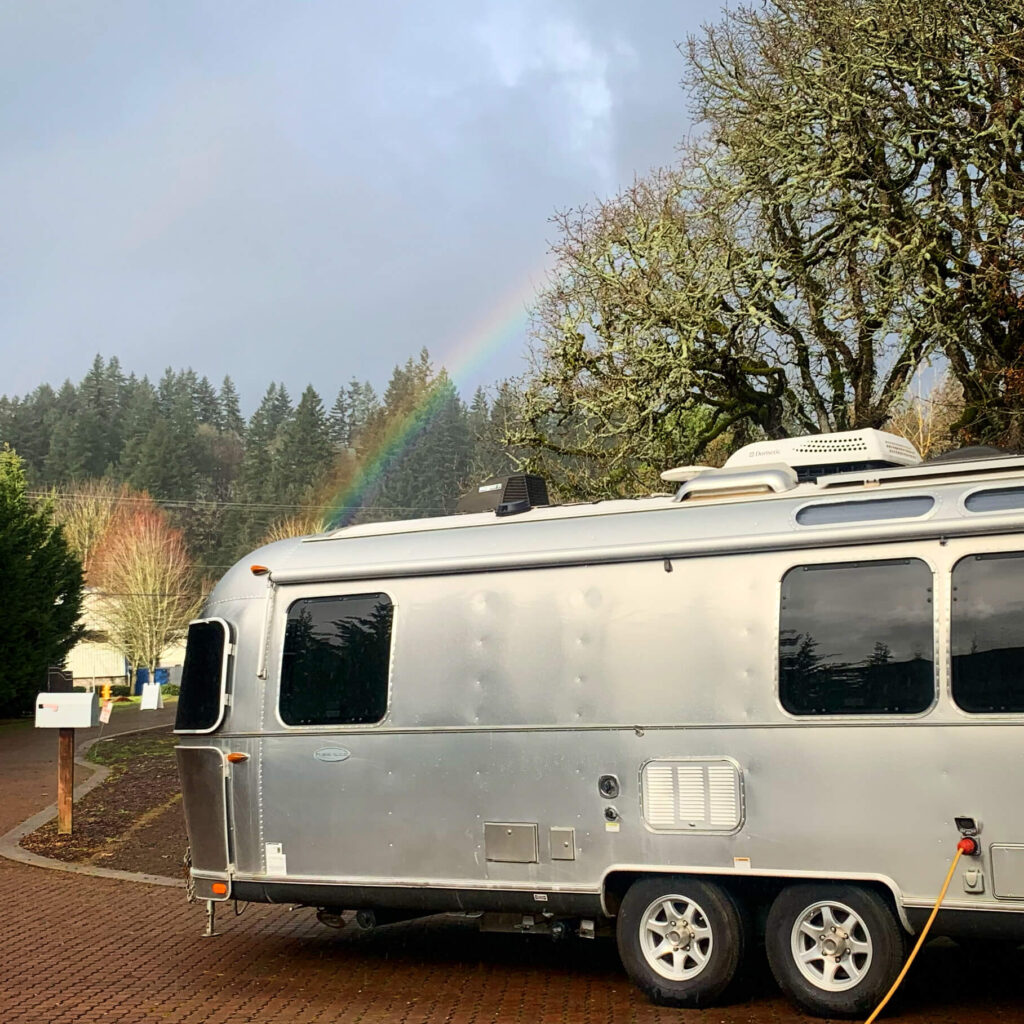During winter months, cold weather can impact the performance of your RV solar batteries. Ensuring proper maintenance is crucial to keep your RV solar system functioning efficiently and effectively in these harsh conditions.
To maintain the efficiency and performance of your RV solar batteries in cold weather, it is important to follow a series of steps, such as insulating your Lithium batteries or venting your lead-acid batteries, using battery heaters, and proper solar panel maintenance.
When it comes to powering your RV’s electrical system, there are two main types of batteries to consider: lithium solar batteries and lead-acid batteries. Each type has its own advantages and drawbacks, and understanding these differences can help you make an informed decision about which battery is best for your specific needs.
Types of RV Solar Batteries
Lithium solar batteries have gained popularity in recent years, thanks to their high efficiency, longer lifespan, lighter weight, faster charging, and low maintenance compared to traditional lead-acid batteries. These batteries are often more expensive upfront but can provide long-term savings due to their superior performance and durability.
Lead-acid batteries, on the other hand, have been the standard choice for RV owners for many years. While they are generally less expensive than lithium batteries, they require regular maintenance, are heavier, and have a shorter lifespan.
Benefits of Lithium Solar Batteries
Choosing lithium solar batteries for your RV solar system offers several advantages over traditional lead-acid batteries. They have a higher energy density, which means they can store more energy in a smaller and lighter package. This can be especially beneficial for RV owners who want to maximize their available storage space and reduce the overall weight of their vehicle. Lithium-ion batteries have a longer life cycle, meaning they can be charged and discharged more times before the battery capacity begins to degrade. This can result in a longer overall battery life, potentially saving you money on replacement costs in the long run.
Additionally, Lithium-ion batteries do not vent hydrogen like lead-acid batteries do. This means that they can be installed in a fully sealed environment or even inside the RV, allowing for better longevity and better low-temperature resilience.
Factors Affecting Performance and Lifespan of RV Solar Batteries
The performance and lifespan of your RV solar batteries can be influenced by several factors, including temperature, charging and discharging habits, and maintenance practices. Cold weather can have a significant impact on battery power and performance, with extreme cold or heat potentially affecting both the efficiency and lifespan of the battery system. It’s essential to properly maintain and monitor your RV solar batteries to ensure they continue to function optimally and provide reliable power for your RV’s electrical system.
Preparing Your RV Solar System for Cold Weather
As cold weather sets in, it’s essential to prepare your RV solar system for optimal performance and longevity during the winter months. This involves taking proactive steps such as ensuring proper insulation, installing low-temperature batteries with internal heating mechanisms, and using battery heaters or insulation to prevent freezing.
1. Ensuring Proper Insulation and Ventilation
During cold weather, it’s crucial to ensure that your RV solar system is adequately insulated. Proper insulation helps maintain the ideal operating temperature for your solar batteries, preventing potential damage caused by freezing temperatures.
2. Installing Low-Temperature Batteries with Internal Heating Mechanisms
Low-temperature batteries, such as LiFeBlue lithium RV batteries, are designed specifically for use in extreme environments. These lithium iron phosphate batteries come equipped with an internal heating mechanism that allows for more effective charging during cold weather. Installing low-temperature batteries in your RV solar system can significantly improve your system’s performance and lifespan during winter months.
3. Using Battery Heaters or Insulation to Prevent Freezing
Another essential step to maintain your RV solar battery bank in cold weather is to use battery heaters or insulation to prevent freezing. LifeBlue battery heaters work by diverting input current to internal heaters that will keep the cells warmed as the ambient drops below freezing, while insulation will allow for battery bays to stay thermally isolated from outside temperatures. Both methods are effective in protecting your RV solar batteries from potential damage caused by freezing temperatures, ensuring reliable performance throughout the winter season.
Solar Panel Maintenance in Cold Weather
In cold weather, maintaining your RV solar panels is crucial for ensuring optimal performance and durability. As temperatures drop, snow and ice can accumulate on the panels, hindering their ability to absorb sunlight and generate power. To keep your RV solar system functioning efficiently during the winter months, follow these essential maintenance tips:
1. Keep Panels Clean from Snow and Ice
Regularly removing snow and ice from your solar panels is vital for maintaining their efficiency in cold weather. Accumulation of snow and ice can block sunlight and potentially cause damage to the panels. When cleaning the panels, be gentle and use a soft brush or broom to avoid scratching the surface. It’s also important to clear any debris or dirt that may have settled on the panels.
2. Position Panels to Maximize Sunlight Exposure
During the winter months, the sun’s position in the sky changes, often resulting in reduced sunlight exposure for your solar panels. To maximize sunlight absorption, adjust the tilt and orientation of your panels to face the sun directly. AM Solar Mounts come in two pieces, and can easily allow for tilt-bars to be installed when stationary. In the Northern Hemisphere, panels should ideally face south, while those in the Southern Hemisphere should face north. Regularly monitoring and adjusting your panel positioning can help maintain optimal performance throughout the cold weather season.
3. Regularly Inspect for Damage and Tight Connections
As temperatures fluctuate, solar panel components can expand and contract, potentially leading to loose connections and damage. To ensure the longevity and efficiency of your RV solar system, regularly inspect your panels for any signs of damage, such as cracks or discoloration. Additionally, make sure all connections are secure and corrosion-free. By maintaining your RV solar panels in cold weather, you can enjoy the benefits of solar power even during the winter months.
Battery Charging and Monitoring in Cold Weather
During the winter months, it’s crucial to effectively charge and monitor solar batteries to ensure optimal performance and longevity. There are several methods to charge lithium batteries in cold weather, as well as tools and technologies for monitoring battery health.
Charging lithium batteries can be achieved through various methods, such as solar panels, alternator charging while driving, and shore power using an RV solar charger compatible with a lithium battery bank. Each method has its advantages and helps maintain battery performance during cold weather.
The Role of Solar Battery Controllers
Solar battery controllers play a significant role in maintaining the efficiency of your RV solar system. There are two main types of controllers: PWM (Pulse Width Modulation) and MPPT (Maximum Power Point Tracking). PWM controllers are more affordable but less efficient, while MPPT controllers offer better efficiency and can provide more power to the batteries. Choosing the right controller for your RV solar system is crucial for optimal performance in cold weather.
Monitoring Battery Health Using Bluetooth Technology
Keeping a close eye on your RV solar batteries’ health is essential, especially during the winter months. LifeBlue lithium batteries offer comprehensive Bluetooth monitoring, allowing you to track status, temperature, voltage, current, cycle life, battery health, faults, and state of charge. This technology enables you to detect any potential issues early on and take appropriate action to maintain your RV solar batteries in cold weather.
Upgrading and Expanding Your RV Solar System
As technology advances RV solar power needs evolve, upgrading and expanding your RV solar system becomes necessary. One of the significant upgrades to consider is switching to lithium batteries. These batteries offer higher efficiency, longer lifespan, lighter weight, faster charging, and low maintenance compared to traditional lead acid batteries. Before upgrading, it is crucial to ensure compatibility with your existing components.
Compatibility is a vital factor when upgrading or expanding your RV solar system. Mixing lithium batteries with other types of batteries in the same system is generally not recommended due to differences in voltage, charging profiles, and discharge rates. Additionally, when upgrading to lithium batteries, it’s essential to verify that charging sources such as solar charge controller and converter or inverter/charger are lithium compatible.
Expanding your RV solar system with additional solar panels is another way to enhance your system’s performance. When adding more panels, ensure that they are compatible with your existing components and that the additional panels are securely mounted and connected. With the right upgrades and expansions, you can enjoy a more efficient and powerful RV solar system that meets your changing needs.
Safety and Disposal of RV Solar Batteries
When it comes to using RV solar batteries, ensuring their safety and proper disposal is crucial. In this section, we will discuss the importance of proper installation and securing of lithium batteries, regulatory considerations and adherence to electrical codes, as well as the appropriate disposal methods for lithium batteries.
1. Proper Installation and Securing of Lithium Batteries
Proper installation of lithium batteries is essential for their safety and performance. Make sure to follow the manufacturer’s guidelines and recommendations for securing the batteries, including what orientation the batteries can be installed in. This may include using mounting brackets, straps, or other hardware to keep the batteries in place and prevent any movement during travel. AM Solar prefers to use battery straps in our installations and DIY kits. Additionally, ensure that lithium batteries are installed in a sealed environment, as excessive cold or moisture can negatively impact their performance and lifespan.
2. Regulatory Considerations and Adherence to Electrical Codes
Even though there is no governing body or Authority-Having-Jurasdiciton on off-grid power systems in RVs like there is with real properties, it is still a good idea to follow the National Electric Code, best practices, and manufacturer recommendations whenever possible. This means following ampacity charts for cable gauges, proper sizing of fuses/breakers, using disconnects, and mounting equipment in proper areas and orientations. Some things like grounding are less applicable when the “structure” is on rubber wheels, so you can leave your galvanized ground rods at home. If codes are greek, reach out to us to help design a custom solution, or take a look at our pre-configured kits that demonstrate the proper balance of systems.
3. Specialized Recycling Centers for Lithium Battery Disposal
When it comes time to dispose of your RV solar batteries, it is important to do so responsibly. Lithium batteries should not be thrown away with regular trash, as they can pose environmental and safety risks, plus there is a lot of useful materials in them that can be upcycled. Instead, take your used lithium batteries to a specialized recycling center or facility equipped to handle lithium battery disposal. These facilities have the necessary equipment and expertise to safely process and recycle lithium batteries, ensuring minimal impact on the environment.
AM Solar Products and Services for RV Solar Power
AM Solar offers a variety of solar products, including complete solar kits, solar panels, lithium batteries, charge controllers, inverters, and more. These components are specifically designed for RV applications, providing reliable performance and efficiency to meet your energy needs. With AM Solar’s products, you can ensure that your RV solar package is well-equipped to handle cold weather challenges.
Professional Installation Services and Customer Support
AM Solar not only provides top-quality RV solar products but also offers professional installation services to ensure your RV solar system is set up correctly. Their knowledgeable and customer-focused team is committed to providing excellent customer support, helping you navigate any challenges or questions you may have regarding your RV solar system. With AM Solar, you can trust that your solar power needs are in good hands.
Educational Resources on RV Solar Power
In addition to supplying high-quality products and services, AM Solar also offers educational resources to help RV owners understand and maintain their solar systems. These resources cover various aspects of RV solar power, from installation and maintenance to optimizing performance in cold weather conditions. By leveraging AM Solar’s expertise, you can ensure that your RV solar batteries remain efficient and reliable even during the winter months.
Optimize RV Performance with AM Solar
Maintaining solar batteries in cold weather is crucial for optimal performance and longevity. Taking steps such as ensuring proper insulation, using low-temperature batteries, and keeping solar panels clean can make a significant difference. AM Solar offers a wide range of products and services to help you navigate the winter months, including complete solar kits, lithium batteries, solar charge controllers, battery monitors and more. Stay ahead of the cold by exploring AM Solar’s RV solar power products and services and discover the benefits of their expert services.




